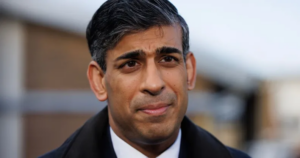As the world observes the International Day Against Homophobia, Biphobia, and Transphobia (IDAHOBIT) on May 17th, LGBTQ+ organizations, including ILGA Asia and the International Commission of Jurists (ICJ), have united in condemning the persistent violence and discrimination faced by LGBTQ+ people. While progress has been made in decriminalizing same-sex activity in some countries, the use of the death penalty as punishment remains a grave concern. This article sheds light on the urgent need to address anti-LGBTQ+ laws and abolish capital punishment worldwide, emphasizing the disproportionate impact on ethnic and religious minorities and marginalized communities.
Challenging the Criminalization and Death Penalty
Currently, 66 countries globally still criminalize private, consensual same-sex activity, a reduction from the previous year. However, the death penalty continues to be enforced in 11 countries, with eight of them located in Asia. Afghanistan, Brunei, Darussalam, Iran, Mauritania, Nigeria, Pakistan, Qatar, Saudi Arabia, Somalia, the United Arab Emirates, and Yemen retain the death penalty for LGBTQ+ individuals. Such laws perpetuate human rights violations and hinder access to healthcare systems, especially for marginalized communities.
Violation of Human Rights and Disproportionate Impact
The retention and implementation of the death penalty for consensual, same-sex sexual conduct directly violate the right to life and the right to freedom from cruel, inhuman, and degrading treatment or punishment. Daron Tan, associate international legal adviser at the ICJ, highlights how these laws breach numerous human rights and disproportionately affect ethnic or religious minorities and those from disadvantaged socio-economic backgrounds. The consequences extend beyond punishment to denial of access to legal representation and fair trials.

Decriminalization and Abolition: A Call for Action
ILGA Asia’s research officer, Ajita Banerjie, emphasizes the urgent need for global decriminalization of same-sex sexual conduct and the abolition of the death penalty. Authorities in countries that retain the death penalty are urged to introduce a moratorium on its use, taking a crucial step towards complete abolition. Moreover, ensuring necessary safeguards, access to legal representation, and fair trials for individuals currently facing the death penalty due to their engagement in consensual same-sex sexual conduct is vital.
International Condemnation and Commitment
The United Nations and various human rights organizations have repeatedly condemned the use of the death penalty in multiple countries. The UN General Assembly, in December 2020, called upon states to ensure that the death penalty is not applied based on discriminatory laws or arbitrary application. Despite countries not employing the death penalty, many LGBTQ+ individuals face arrests and convictions under vague “immorality” laws, targeting their freedom and human rights.
Case in Point: Iran’s Disturbing Reality
Iran stands as a stark example of the severe consequences LGBTQ+ individuals face under repressive laws. The execution of two gay men, Mehrdad Karimpour and Farid Mohammadi, after six years on death row, sparked international outrage. Human rights groups have reported additional instances of executions on charges related to same-sex activity. These cases serve as a painful reminder of the urgent need for change to protect LGBTQ+ lives worldwide.
Author
-

the world's first and only daily LGBTQ+ evening news show. This program features a variety of hosts and guests who discuss the latest news and events related to the LGBTQ+ community. Queer News Tonight covers topics ranging from politics and entertainment to health and social issues, providing a comprehensive look at what's happening in the LGBTQ+ world.























